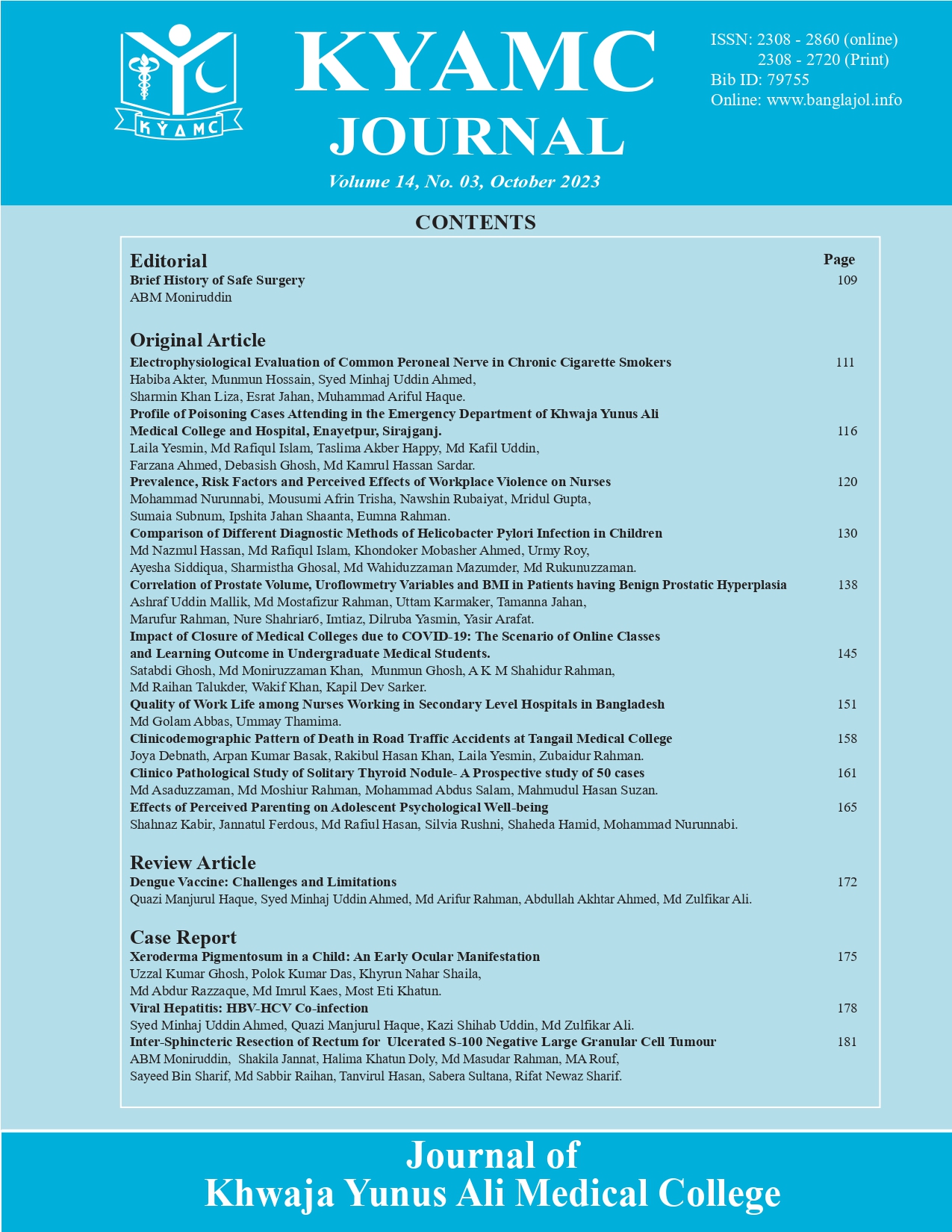Impact of Closure of Medical Colleges due to COVID 19: The Scenario of Online Classes and Learning Outcome in Undergraduate Medical Students.
DOI:
https://doi.org/10.3329/kyamcj.v14i03.68466Keywords:
COVID-19, Medical colleges, Medical students, Online classes, Learning outcomeAbstract
Background: During Coronavirus disease (COVID 19) pandemic all educational institutions including the medical colleges in Bangladesh were closed for more than ten months. In this period all classes for undergraduate medical students like lectures and practical classes were taken by online platform. For this reason, the scenario of online classes and learning outcome need to be assessed among undergraduate medical students during COVID 19 pandemic.
Objective: To find out the scenario of online classes and learning outcome in undergraduate medical students during the COVID-19 pandemic.
Materials and Methods: An observational study, among different years of MBBS medical students exposed to both online and offline classes during COVID pandemic from 2020 -2021. This study was carried out by the Department of Pharmacology and Therapeutics, at Khwaja Yunus Ali Medical College (KYAMC). A total number of 237 medical students from different years were included randomly in this study. Among them 99 male and 138 female medical students participated. To collect data, a questionnaire form was supplied to the participants to fill up. This form contained some demographic criteria, health issues during online classes, internet connectivity issues, problem faced by students, opinion to encourage online classes in future and causal factors of lack of interest. In addition, we also made a comparison between marks obtained in case of online and offline written examinations (SAQ) and oral examinations (SOE).
Results: The result showed that anxiety and depression were developed in 53.59% and 44.30% of medical students respectively due to COVID-19. Eyesight problem was developed in 66.66% of medical students due to online classes. 50% of students reported the communication gap between patients and students during practical classes. 52.74% of medical students did not recommend such types of online classes in the future. The comparison between online and offline examinations showed that the results of offline exams were better than online.
Conclusion: During COVID pandemic we used online classes as an alternative teaching-learning process. But we found poor
performance in their exams. The students also did not suggest online classes in the future.
KYAMC Journal Volume: 14, No: 03, October 2023: 145-150.
Downloads
83
49
Downloads
Published
How to Cite
Issue
Section
License
Copyright (c) 2024 KYAMC Journal

This work is licensed under a Creative Commons Attribution-NonCommercial 4.0 International License.




